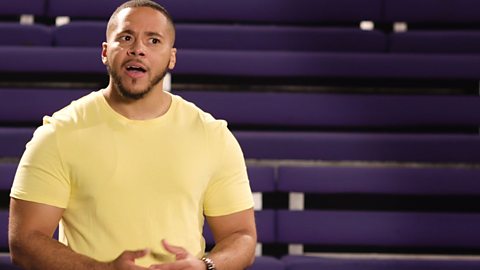Fun fact
Samuel Johnson’s A Dictionary of the English Language was first published in 1755. He started planning it in 1746 and it took him nine years to complete!
Introduction on how to use a dictionary
A dictionary can help you to spell or understand any new words, so it is a fantastic tool to help you improve your English skills. Dictionaries can help you in your reading and writing, and to improve your vocabulary.
A dictionary can be used to look up the meaning of a word.
You can also use a dictionary to check the spelling of a word.
Dictionaries may also give other information about words, such as word type and word origin.
Video explaining how to use a dictionary
Find out how to use a dictionary
Step-by-step guide to using a dictionary
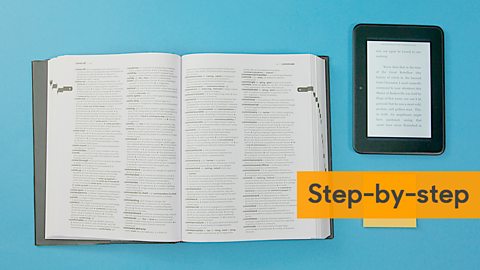
Image caption, Click to see a step-by-step slideshow of how to use a dictionary.
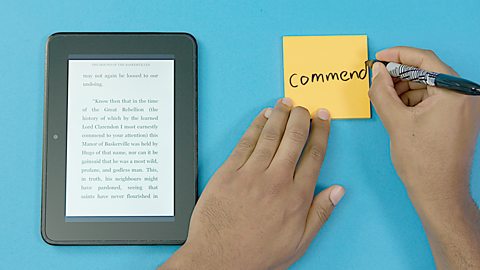
Image caption, STEP 1 - Find the word you want to look up.
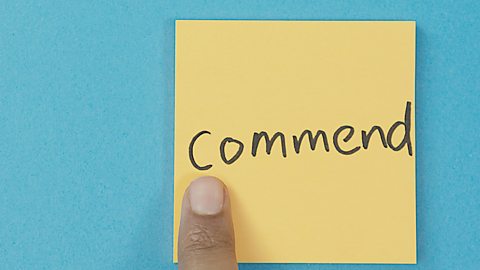
Image caption, STEP 2 - Find the letter that the word begins with.

Image caption, STEP 3 - Open the dictionary to the page with the relevant letter, in this case the letter C.
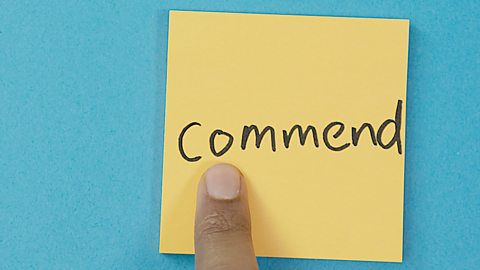
Image caption, STEP 4 - Now look at the second letter in the word you are looking for.

Image caption, STEP 5 - Look at the letter after C, scan down till it is O. TIP: Check the guide word, on the top right, this can help.
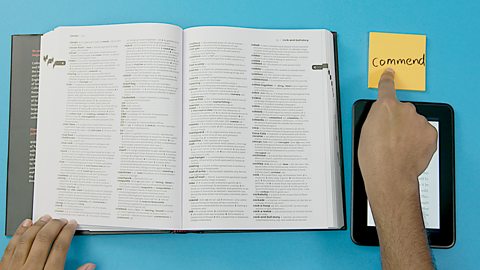
Image caption, STEP 6 - Do the same process for the third, fourth and fifth letters and so on.
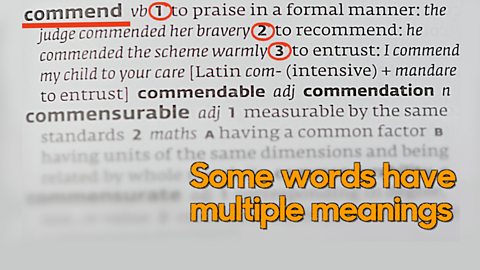
Image caption, STEP 7 - Now that you have found your word, look at the different meanings it has.
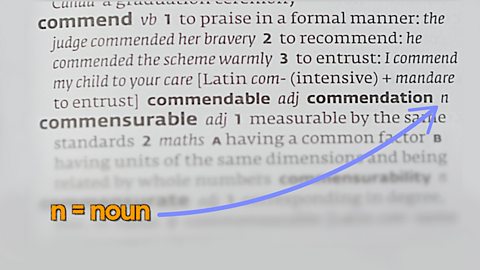
Image caption, STEP 8 - Look at the word in its different forms. Remember that vb stands for verb, n for noun and adj for adjective.
1 of 9
How to use a dictionary
Dictionaries are organised alphabeticalFollowing in the order of the letters of the alphabet starting with a; how the words in a dictionary are arranged., so start with the first letter of the word that you are trying to find.
There will be lots of entries for each letter of the alphabet, so use the guide word at the top of the page to help you. The guide word tells you what the first or last word on that page of the dictionary is.
You will need to look at the second letter of the word, and then the third, and so on, in order to find it. It takes a little practice to find words quickly.
You may need to scan several pages of the dictionary in order to find the word that you need. Scanning is a way of reading quickly to find the information that you need. The more you practise, the better you will get at finding words fast.
Word types
When you find your word, there may be an abbreviation next to it. Perhaps vb., n., or adj.
The introduction to your dictionary will tell you what they each mean because every dictionary is different, but these are the most common and may indicate that your word is a verbA verb is a word that shows an action (physical or mental) or state of being. , a nounA naming word for an object, idea, person or place., or an adjectiveA word which describes a noun or pronoun..
Different meanings
Some words have multiple meanings, these are called homonymTwo or more words which are spelled the same but have different meanings.. These will usually be numbered, and may have an example of the way that the word can be used in a sentence.
Some dictionaries may give even more information, perhaps about the origin and history of a word, or some of its synonymA word that has the same or a similar meaning to another word. For example: happy, cheerful and merry are all synonyms. .
Use a dictionary to find the meanings of the homonym
Test your knowledge
GCSE exam dates 2025
Find out everything you need to know about the 2025 GCSE exams including dates, timetables and changes to exams to get your revision in shape.

More on Spelling
Find out more by working through a topic
- count1 of 5
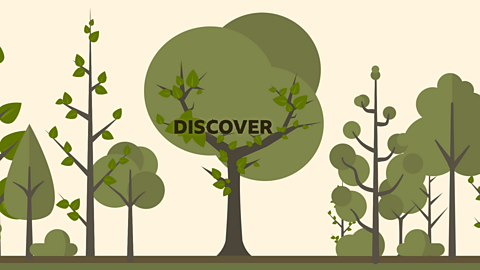
- count2 of 5
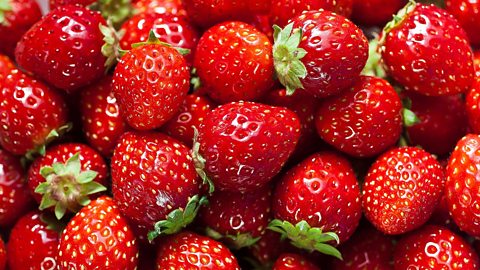
- count3 of 5
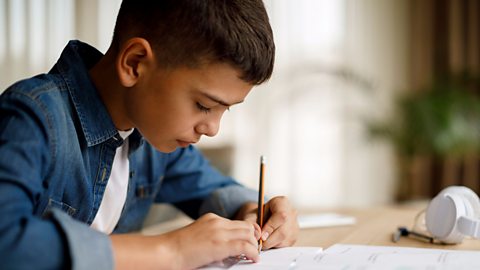
- count4 of 5
